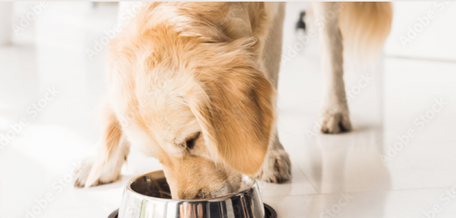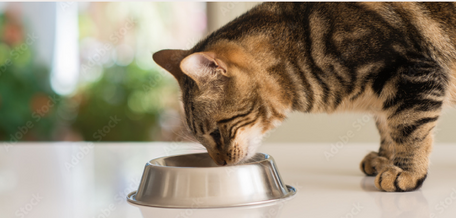Just like us, dogs need a healthy gut to feel their best. Probiotics are helpful little organisms that can keep their digestion in check and support overall health. If you've noticed any signs that your furry friend might need some extra help, it's important to pay attention. Here are the top five signs that your dog could benefit from probiotics, and how fixing these issues can lead to a happier, healthier pup.
Key Takeaways
-
Frequent tummy troubles like diarrhea or constipation can mean your dog needs probiotics.
-
Chronic bad breath might be a sign of digestive issues that probiotics for dogs can help with.
-
Skin problems or allergies could be linked to gut health, and probiotics may improve these conditions.
-
If your dog gets sick often or has a weak immune system, probiotics can help strengthen their defenses.
-
Changes in appetite or weight can indicate digestive problems; probiotics for dogs can assist in better nutrient absorption.
Introduction

Maintaining a healthy gut is essential for your dog's overall well-being. Probiotics play a crucial role in ensuring that your furry friend has a balanced digestive system. Just as we rely on good bacteria to help us digest food and stay healthy, dogs also need these beneficial microbes to thrive.
In this article, we will explore the top five signs that suggest your dog might need probiotics. Recognizing these signs can help you take action to improve your dog's health. Here are some key indicators to watch for:
-
Frequent digestive issues like diarrhea or constipation.
-
Chronic bad breath that doesn't go away with dental care.
-
Skin problems and allergies that seem persistent.
-
Frequent infections or signs of a weakened immune system.
-
Changes in appetite or weight that are unexplained.
Understanding these signs is the first step in ensuring your dog gets the care they need. By addressing these issues with probiotics, you can help restore balance to their gut and improve their overall health.
1. Frequent Digestive Issues
Dogs that often experience digestive problems like diarrhea, constipation, or gas may have an unbalanced gut microbiome. This imbalance can lead to discomfort and other health issues.
How Probiotics for Dogs Help? Understanding the Benefits and Applications
Probiotics for dogs can restore gut flora, which is essential for improving digestion and regularity. Here are some benefits of adding probiotics to your dog's diet:
-
Restores balance in gut bacteria.
-
Improves digestion and nutrient absorption.
-
Reduces symptoms like gas and bloating.
Probiotics for dogs can be a game-changer for their digestive health, helping them feel more comfortable and energetic.
Signs of Digestive Issues
If you notice any of the following signs, it might be time to consider probiotics:
-
Frequent diarrhea or constipation.
-
Excessive gas or bloating.
-
Unpleasant odors from the mouth or stool.
By addressing these issues with probiotics, you can help your dog lead a healthier and happier life.
2. Chronic Bad Breath
Persistent bad breath in dogs can often indicate an imbalance in their digestive system rather than just a dental problem. Harmful bacteria in the mouth can release toxins that lead to foul odors. This is where probiotics come into play. They can help support the oral microbiome, promoting healthier digestion and reducing the bacteria that cause bad breath.
Here are some key points to consider:
-
Bacterial Imbalance: Bad breath may signal that your dog's gut bacteria are out of whack.
-
Digestive Health: Probiotics for dogs can restore balance, leading to fresher breath and better overall health.
-
Dental Care: While dental hygiene is important, addressing gut health can also improve breath.
|
Causes of Bad Breath |
Probiotic Benefits |
|---|---|
|
Bacterial overgrowth |
Restores gut balance |
|
Poor digestion |
Improves nutrient absorption |
|
Dental issues |
Supports oral health |
Keeping your dog's gut healthy is essential for their overall well-being. Probiotics can be a simple yet effective way to tackle bad breath and improve your dog's health.
In conclusion, if your dog has chronic bad breath, it might be time to consider probiotics as a part of their health routine. Not only can they help with bad breath, but they can also enhance your dog's overall digestive health.
3. Skin Problems and Allergies

Recurring skin issues, such as itching, redness, or allergies, can often be linked to your dog's gut health. A healthy gut is essential for a healthy skin. When the gut microbiome is out of balance, it can lead to various skin problems. Here’s how probiotics for dogs can help:
-
Strengthen the immune system: Probiotics can enhance your dog's immune response, potentially reducing allergic reactions.
-
Improve nutrient absorption: A balanced gut helps in absorbing essential nutrients that support skin health.
-
Control bacterial overgrowth: Probiotics can help manage harmful bacteria that may contribute to skin issues.
Probiotics play a crucial role in maintaining a balanced gut microbiome, which is vital for your dog's overall health. When the gut is healthy, it can better fight off allergens and reduce inflammation, leading to fewer skin flare-ups.
BJ's Raw Pet Food’s Probiotic Supplements for Managing Gut Health Naturally
If your dog is struggling with skin problems, consider incorporating BJ’s Probiotic Supplements into their diet. These supplements are designed to support gut health and can be a natural way to help manage skin issues.
Probiotics for dogs are not just for digestion; they can also be a game-changer for your dog's skin health. By restoring balance in the gut, you may see improvements in your dog's skin condition and overall well-being.
4. Frequent Infections or Weakened Immunity

A dog that frequently gets sick or takes a long time to recover may have a weakened immune system. This can often be linked to an imbalance in their gut bacteria. When the gut microbiome is not healthy, it can lead to a variety of health issues, including infections.
Here are some signs that your dog might need probiotics:
-
Frequent infections: If your dog seems to catch colds or infections often, it could be a sign of poor gut health.
-
Slow recovery: Dogs that take longer than usual to bounce back from illnesses may benefit from a boost in their gut flora.
-
Digestive issues: Problems like diarrhea or constipation can also indicate that the gut is not functioning properly, which can affect overall immunity.
Probiotics can help by:
-
Restoring the balance of good bacteria in the gut.
-
Enhancing the immune response, making it easier for your dog to fight off infections.
-
Supporting overall digestive health, which is crucial for nutrient absorption and immune function.
Remember: Always consult your veterinarian before starting any new supplements, especially if your dog has a severely weakened immune system. Probiotics for dogs can be beneficial, but they should be used with caution in these cases.
5. Changes in Appetite or Weight
Changes in your dog's appetite or weight can be concerning. If your dog is suddenly eating less or gaining weight without a clear reason, it might be a sign of digestive issues. Here are some key points to consider:
-
Unexplained Weight Changes: Sudden weight gain or loss can indicate that your dog is not absorbing nutrients properly.
-
Fluctuating Appetite: If your dog is picky about food or refuses to eat, it may be due to an imbalance in their gut health.
-
Nutrient Absorption: Probiotics can help improve how your dog absorbs nutrients, which can stabilize their appetite and maintain a healthy weight.
|
Symptoms |
Possible Causes |
Probiotic Benefits |
|---|---|---|
|
Sudden weight gain |
Poor digestion |
Enhances nutrient absorption |
|
Unexplained weight loss |
Stress or illness |
Restores gut balance |
|
Gut microbiome imbalance |
Encourages healthy eating habits |
Maintaining a balanced gut is essential for your dog's overall health. Probiotics can play a vital role in ensuring your dog gets the nutrients they need.
By keeping an eye on these signs, you can help your dog lead a healthier life. If you notice any of these changes, consider consulting your vet about incorporating probiotics into their diet.
Conclusion
In summary, the five key signs that suggest your dog may need probiotics include:
-
Frequent digestive issues like diarrhea or constipation.
-
Chronic bad breath that could indicate digestive problems.
-
Skin problems and allergies that may be linked to gut health.
-
Frequent infections or weakened immunity showing a need for gut support.
-
Changes in appetite or weight that could signal digestive concerns.
If you notice any of these signs in your dog, it’s important to consult your veterinarian. They can help determine the best course of action. Additionally, consider incorporating high-quality probiotic supplements, such as BJ’s Probiotic Supplements, into your dog’s daily routine. This can lead to improved health and a happier, more balanced life for your furry friend.
Remember, just like humans, dogs thrive with a balanced gut. Probiotics can play a crucial role in achieving that balance, leading to better overall health and well-being.
In conclusion, giving your pets the best nutrition is essential for their health and happiness. If you want to explore high-quality raw food options for your furry friends, visit our website today! Your pets deserve the best, and we’re here to help you find it!
Frequently Asked Questions
What are probiotics for dogs?
Probiotics are good bacteria that help keep your dog's stomach healthy. They can be found in some foods and supplements.
How do I know if my dog needs probiotics?
Look for signs like bad breath, digestive problems, or itchy skin. If your dog has these issues, probiotics might help.
Can I give my dog human probiotics?
No, human probiotics are made for people and might not be safe for dogs. Always choose probiotics made for pets.
How can probiotics help my dog's health?
Probiotics can improve digestion, boost the immune system, and even help with allergies and skin problems.
Are there any side effects of probiotics for dogs?
Most dogs handle probiotics well, but some may experience mild stomach upset. Always start with a small amount.
What should I look for when choosing a probiotic for my dog?
Choose a probiotic specifically made for dogs, check for live cultures, and consult your vet for the best options.




















